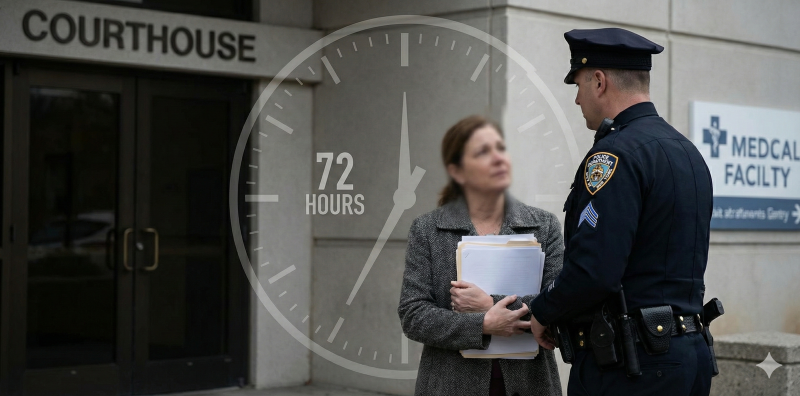
When a loved one is suffering from a mental health crisis and is a danger to themselves or others, family members often seek legal intervention to get them immediate help. While this is an emotional and urgent situation, the legal system has specific, often frustrating, procedures for involuntary commitment.
The Mental Health Warrant Process
The primary mechanism for securing emergency intervention is through a mental health warrant, also known as a mental illness warrant. In Texas, any adult can go to the courthouse and swear out a mental health warrant.
The court will then hold a preliminary emergency hearing to determine if there is a reasonable likelihood or probable cause that the person poses a risk of harm to themselves or other people.
If the court determines the standard is met, they will send a peace officer to pick up the individual and transport them to a mental health facility for evaluation.
The Cycle of Crisis and Release
By law, the individual must have a more permanent hearing within 72 hours of being taken to the facility. Often, the mental health facility evaluates the person, diagnoses their disorder, administers the correct medication, and the person returns to a state of temporary normalcy. They are then released.
The major frustration for families is that this process often repeats. The person stops taking their medication, enters a crisis, and the family is left to restart the legal process.
The System is Broken for Recurring Issues
The difficulty in getting a guardianship for individuals with fluctuating mental health issues often forces families to rely on the emergency mental health warrant process, even though it is not designed for permanent, long-term care.
Many legal experts feel that the legal system is not the best equipped to handle this complex issue. Truly solving the problem requires a multi-disciplinary approach, involving:
- A lawyer specializing in mental health to initiate the warrant or navigate commitment.
- Doctors to provide permanent solutions, proper medication, and long-term care plans.
- Rehabilitation services to address the underlying issues.
Ultimately, family members trying to help a loved one with a recurring mental illness often find themselves in a frustrating cycle where the legal system provides only temporary relief.
All information provided on Silblawfirm.com (hereinafter "website") is provided for informational purposes only, and is not intended to be used for legal advice. Users of this website should not take any actions or refrain from taking any actions based upon content or information on this website. Users of this site should contact a licensed Texas attorney for a full and complete review of their legal issues.
